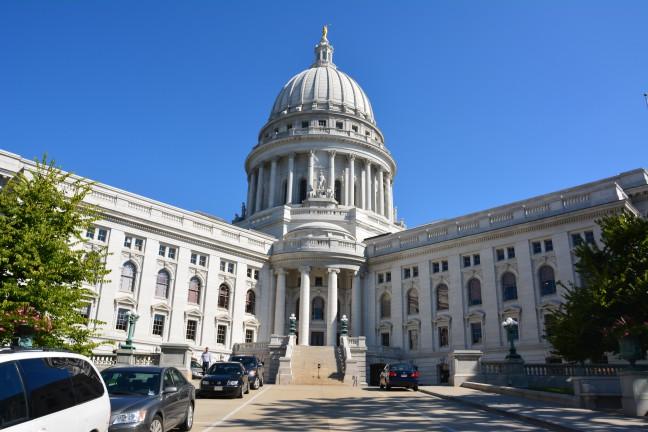Gov. Scott Walker’s administration reported a sizable gap Thursday between current state revenue and program requests for the 2015-2017 budget cycle, as experts call for prioritization of public education and social services.
The likely result of this potential deficit is a cut to these program requests, as Walker has made it clear he does not intend to raise property or income taxes. New asks from Medicaid, the state transportation fund and the Department of Public Instruction alone push what the state has received in new tax revenue, according to Todd Berry, president of Wisconsin Taxpayer’s Alliance.
“The information recently released by the Department of Administration project a big gap between projected revenue and the projected amount of money that will be needed to just do what the state is currently doing,” University of Wisconsin professor of public affairs and applied economics Andrew Reschovsky said.
Reschovsky said one of the main reasons the budget is emerging in this way is due to property and income tax reductions that were passed half a year ago when there was a projection of a budget surplus.
Reschovsky said when tax reductions are based off a one-time surplus, it can create a structural deficit, which he says is what is happening with this budget. Along with this, revenue projections “weren’t as rosy as they thought,” exacerbating the problem, he said.
“State lawmakers hastily passed tax cuts based on overly optimistic revenue projections, and we can now see that actually revenues are far below what they were anticipating,” Jon Peacock, director of the Wisconsin Budget Project, said. “Once again, they failed to plan for the possibility that their forecasts would be too optimistic.”
According to Berry, citizens should not be overly concerned about media speculations at potential deficit, which the Wisconsin State Journal reported to be about $2.2 billion. He said there are almost always differences between what the state has in terms of revenue and what programs want at this point in the fiscal year, and state agencies program asks are almost never fully funded.
Reschovsky pointed to the UW System budget, which had to make substantial changes due to cuts in the last budget. He said the combination of lack of revenue and no increase in taxes means belt-tightening at the university, especially since Walker has said he will freeze tuition.
“This will be decreasing funding at a time when we really need to increase it to keep up with normal inflation,” Peacock said. “If tuition will be frozen again, and I suspect it will be, there isn’t going be funding to keep up with growth and costs for salaries and in other areas.”
The Department of Transportation has asked for a $600 million transfer from the general fund to improve roads, one of the larger asks of the next budget. Reschovsky said the state should be focusing on education, health care and social support at this time.
“That’s a decision about priorities,” Reschovsky said. “In periods where there isn’t enough money, one would hope that there would be an overall assessment of what the major priorities are.”
Correction: A previous version of this story said the projected deficit is $2.2 million. This post has been updated to reflect that the number is actually $2.2 billion.













